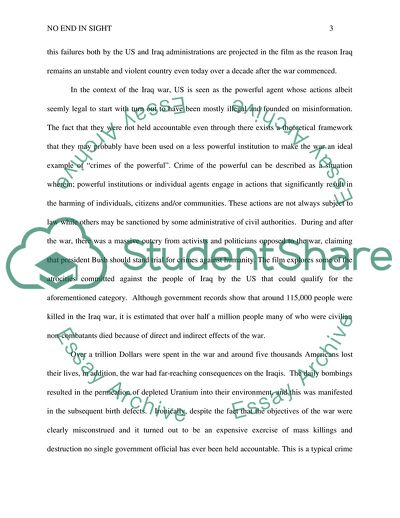Cite this document
(Documentary Analysis and Opinion: No End in Sight Movie Review Example | Topics and Well Written Essays - 2000 words, n.d.)
Documentary Analysis and Opinion: No End in Sight Movie Review Example | Topics and Well Written Essays - 2000 words. https://studentshare.org/sociology/1842472-documentary-analysis-and-opinion
Documentary Analysis and Opinion: No End in Sight Movie Review Example | Topics and Well Written Essays - 2000 words. https://studentshare.org/sociology/1842472-documentary-analysis-and-opinion
(Documentary Analysis and Opinion: No End in Sight Movie Review Example | Topics and Well Written Essays - 2000 Words)
Documentary Analysis and Opinion: No End in Sight Movie Review Example | Topics and Well Written Essays - 2000 Words. https://studentshare.org/sociology/1842472-documentary-analysis-and-opinion.
Documentary Analysis and Opinion: No End in Sight Movie Review Example | Topics and Well Written Essays - 2000 Words. https://studentshare.org/sociology/1842472-documentary-analysis-and-opinion.
“Documentary Analysis and Opinion: No End in Sight Movie Review Example | Topics and Well Written Essays - 2000 Words”. https://studentshare.org/sociology/1842472-documentary-analysis-and-opinion.


